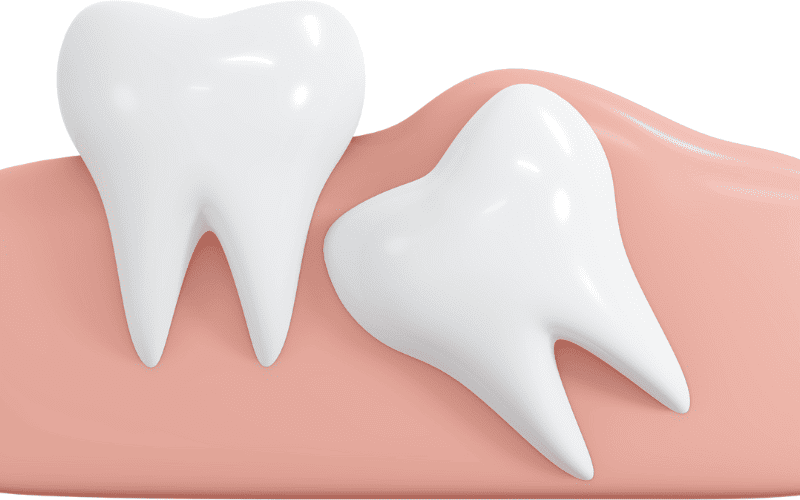ONLINE SCHEDULING AND VIRTUAL CONSULTS AVAILABLE

The Common Signs Of Wisdom Tooth Troubles: A Guide To Early Detection
Your smile is a reflection of your confidence, and taking care of your dental health plays a pivotal role in maintaining that radiant grin. Among the many challenges that can arise, wisdom tooth troubles often stand out as a common concern. These third molars, also known as wisdom teeth, typically make their appearance in late adolescence or early adulthood. While they can be a valuable asset when healthy and properly aligned, they often come with a host of problems. We will delve into the common signs of wisdom tooth troubles and how wisdom teeth extraction in Plantation, FL, empowers you to detect issues early and take proactive measures for a pain-free dental experience.
Unraveling the Signs
Pain and Discomfort:
The discomfort associated with wisdom teeth troubles is not to be taken lightly. If you find yourself wincing in pain while chewing or experiencing a persistent ache at the back of your mouth, your wisdom teeth might be the culprit. Please pay attention to any throbbing sensations, as they could indicate issues with alignment or potential impaction.
Swelling and Redness:
Wisdom teeth making a grand entrance can sometimes bring unwelcome guests—swelling and redness. If your gums appear puffy and exhibit a reddish hue, it’s time to investigate. These signs may point towards an improper eruption or even infection around the wisdom tooth area.
Jaw Stiffness:
Imagine your jaw as a well-oiled machine, smoothly opening and closing without a hitch. Now, if you’re experiencing stiffness or pain when chewing or talking, your wisdom teeth might be disrupting this symphony. The pressure exerted by misaligned wisdom teeth can cause jaw discomfort, affecting your daily activities.
Bad Breath and Unpleasant Taste:
While we all wake up with morning breath, persistent bad breath, even after diligent oral care, may signal wisdom tooth troubles. Impacted wisdom teeth can create nooks and crannies that become breeding grounds for bacteria. The result? A not-so-pleasant taste is lingering in your mouth, accompanied by less-than-fresh breath.
Headaches and Earaches:
The connection between your wisdom teeth and headaches or earaches may seem like a dental mystery. However, as these molars push and prod their way into your mouth, they can cause radiating pain that extends to your head and ears. If you find yourself reaching for pain relievers due to unexplained headaches, it might be time for a dental checkup.
Visible Cysts or Pus:
In some cases, wisdom teeth troubles can manifest in more visible ways. Keep an eye out for the presence of cysts or the discharge of pus around the affected area. These signs may indicate an infection that requires prompt attention from your dentist.
Pain in Adjacent Teeth:
Wisdom teeth troubles aren’t always confined to the back of the mouth. If you’re feeling pain in the teeth adjacent to your wisdom teeth, it could be a sign of pressure or misalignment affecting the neighboring teeth. Addressing this promptly can prevent further complications.
How Early Detection of Wisdom Tooth Extraction Can Help
Early detection of wisdom tooth issues allows for timely intervention, preventing the escalation of pain and discomfort. Addressing problems at the onset can often lead to less invasive treatments and a smoother recovery process.
Wisdom teeth can create pockets where bacteria thrive, leading to infections and inflammation. Detecting issues early enables dentists to address potential infection risks promptly. This not only preserves your oral health but also prevents the spread of infection to surrounding areas.
Wisdom teeth, when misaligned or impacted, can exert pressure on neighboring teeth, leading to misalignment or damage. Early detection allows for strategic intervention, preserving the integrity of surrounding teeth and maintaining proper dental alignment.
Your wisdom teeth should not be a source of constant discomfort or worry. By staying vigilant and recognizing the signs early on, you can take proactive steps to ensure a smooth dental journey. Regular dental visits, good oral hygiene practices, and timely interventions can help you maintain a healthy and pain-free smile. In conclusion, understanding the common signs of wisdom tooth troubles empowers you to take control of your dental health. Don’t let these third molars overshadow your smile- Visit us at My Dentist for Life of Plantation and embrace a lifetime of confident grins.





